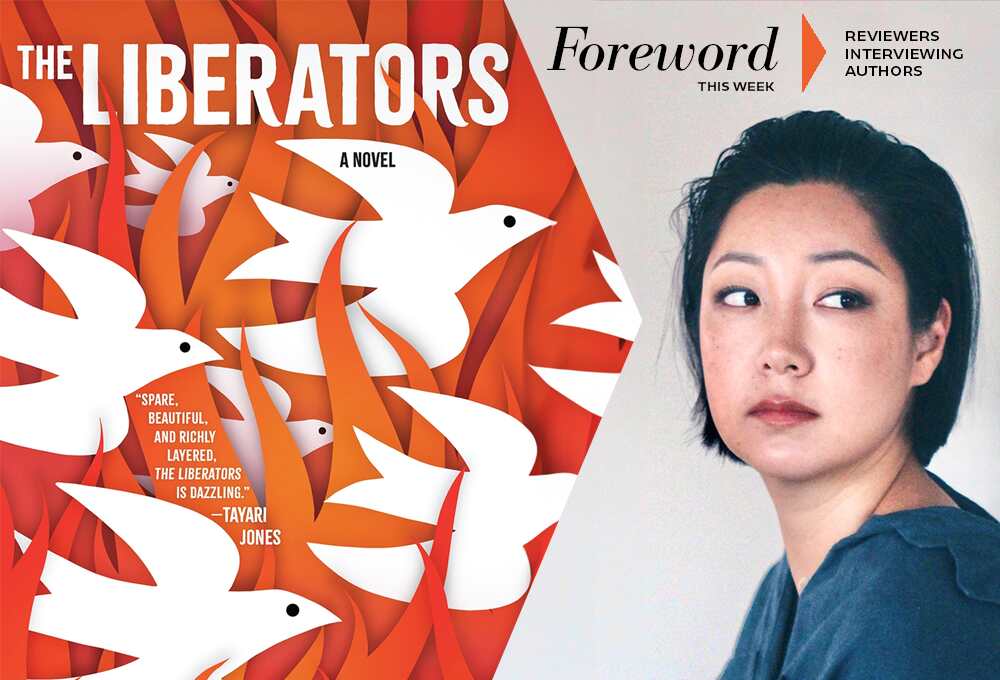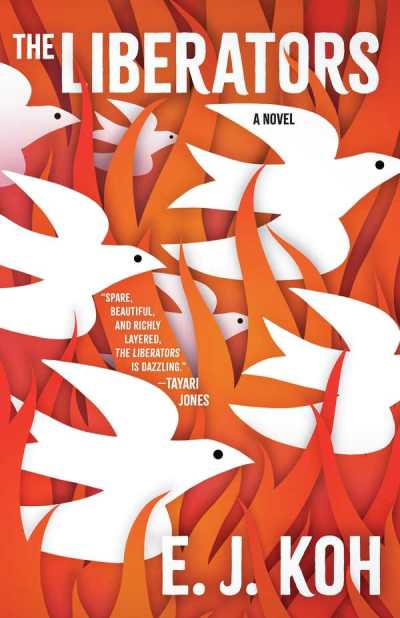Indie Books Adapted to the Screen in 2023; Interview with E.J. Koh, Author of The Liberators

As the year draws to a close, you’ll be seeing more 2023 lists: best of, favorites, year in review—that sort of thing. A recently updated piece in New York Magazine caught our indie-book lovers eye when it tallied up the nearly 100 books that were adapted to the screen in 2023, including these five independently published titles: The End We Start From (Grove Press), Jesus Revolution (Baker Group), Wellmania (Greystone Books), Dreamin’ Wild (The Creative Nonfiction Foundation), and Shortcomings (Drawn & Quarterly).
Before you devour this week’s reviewer-author interview, take a minute to read Eileen Gonzalez’s starred review of The Liberators.
The Liberators is a multigenerational story spanning several decades. What appealed to you about this format? Why do you think it was the best way to tell this story?

For my doctoral work, I studied intergenerational trauma across Korean American literature, history, and film. I was also writing my memoir and a script for a TV show. So I was researching my family’s stories, from the Kantō Massacre—where my grandmother and her parents survived by passing as Japanese, likely with a language test—to the Jeju Island Massacre—during the time my grandmother’s father, who I call grandfather, was stoned to death before the Korean War. This brings up the question of how one has died and how one could possibly remain alive. This is the place from where the book began to take shape.
The title, The Liberators, has multiple meanings in the context of the story. What does this title signify to you?
I sought to underscore the incendiary human lineage of destruction and reparation. Like the unfurling of a tightly coiled fiddlehead, I hoped to meet the personal and collective memory encoded in our bodies—the testimonies from both the perpetrators and the liberators, the guards and the prisoners, the diggers of mass graves and those who must lie in them.
What relevance do you think the story has for a modern audience who may or may not have been alive when some of its pivotal events (the Korean War, the Fifth Republic of Korea) took place?
One question the novel asks is whether the work of humanity is to divide, cut, and erase our troubling origins, or to reconcile with the urge to do so in the face of our grief, violence, and pain. The views in the book intersect at this junction. The way Sungho says, “Why go digging up our past? Didn’t you have enough?” The way Robert says, “Sometimes your past smiles at you. Other times your past points a gun at you.”
One of the most heartbreaking scenes involves the death of Henry’s dog, Toto. And yet, the relatively peaceful loss of a pet is one of the more minor tragedies in a story that explores the consequences of war and dictatorship. Why was it important for you to include this scene? What purpose do you feel it serves in the larger narrative?
In March of this year, I was heartbroken over the loss of my Toto—his name was Ari, a fourteen-year-old Manchester Jack Russell Terrier. I couldn’t work on the novel, but I could write down my dreams about Ari. Then came these pages about Ari and how I couldn’t wait to see him one day. Love isn’t limited to romance—at times, love is hard won between two women, who may never have chosen each other; other times, love is when a child must learn to say goodbye to their dog.
Much of the story involves dark and tragic events, but the ultimate message is one of hope: that it is possible to break harmful old patterns and free oneself (at least to some extent) from the burden of the past. What would you like readers to take away from your story?
There are days I wake up thinking about the losses of the past. But reading and writing—these are the things that teach me it is impossible to be alone. Even in times of great despair, when the past weighs so hard on the heart, I know the sun still shines upon every wreckage and every place on earth, upon everyone and you. That no matter what, I must not let go of hope. That what we feel in our darkest moments can be shared.
Eileen Gonzalez
